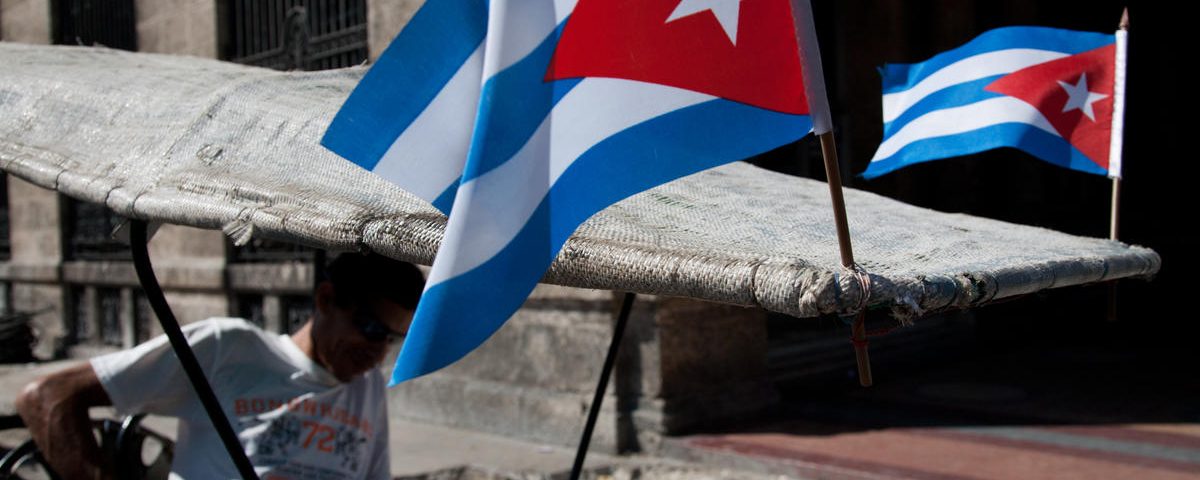
Consul General of Canada in Dallas Presents Seminar at WTCAR
November 6, 2017
Governor Proclaims Dec. 11, 2017 as Agriculture Trade Awareness Day
December 11, 2017The Cuba Embargo: to lift or not to lift?

Street life: a "Bicitaxi" driver with cuban flags. Havana (La Habana), Cuba
Dec. 11, 2017 – Melvin Torres, director of Western Hemisphere trade discusses lifting the Cuban embargo.
To lift or not to lift? That is the question that has been surrounding the news and Congress for years now. Some claim that the almost 60-year-old embargo has isolated the neighbor island and destroyed the once buoyant economy prior to the embargo. Others, claim that the families of the grandchildren that are now mostly third generation Cuban American, are entitled to reparations due to the land or assets their great grandparents or grandparents once held in the island prior to the current government.
According to the Foreign Claim Settlement Commission of the United States Cuban Claims Program Certified Claimant List, from a total of 7,048 claims totaling $1.9billion, 46 claims are for $0, and more than half, (4,798) are for $10,000 or less. Furthermore, 208 are for $50,000 or more with the top 50 over $3.88 Million. Many claims are for the same amount from the same entity or individuals repeated over 35 times. In other words, different people will look at the claims in different ways and can reach different conclusions.
On the other hand, Cuba claims that the almost 60-year-old embargo has impacted Cuba‘s economy development by $1.1Trillion as of 2014.
It looks and sounds like a complex and irreconcilable convolution of numbers and figures but in the end, what do Americans want? According to the PEW Research Center:
- 75% of Americans favor opening diplomatic ties with Cuba.
- 73% of Americans favor lifting the embargo immediately.
Aside from the figures and claims by both parties, the trade and humanitarian factor plays an important role for Arkansas farmers who are well aware of the embargo and understand it. This, as a result of Governor Asa Hutchinson from Arkansas becoming the first Governor to visit Cuba after the normalization of the relations during 2015 as part of a trade mission organized by the World Trade Center Arkansas. Thereafter, a Cuban delegation visited Arkansas from the Cuban Embassy in Washington D.C. on April 2016.
So, what is so difficult about lifting the Embargo? Lifting the embargo needs Congressional approval and introducing a bill. To this extent, on August 1st, 2017, Senate Finance Committee Ranking Member Sen. Ron Wyden, D-Ore., co-sponsored by other 6 Senators, introduced a bill in the US Senate to end the Cuban embargo and establish normal trade relations.
If the Cuban embargo is lifted, Arkansas can provide and finance all the rice Cuba consumes as well as grains, poultry and meats. Cuba is the largest consumer of all these products in the region and Arkansas is the largest producer of rice and one of the top producers of the other agricultural products in the United States. This, along with the humanitarian factor, explains the eagerness of Arkansas’ Agricultural and business community to end the embargo.
The economic impact to Arkansas in a scenario where an embargo is lifted, is considerable. Out of the conservative $1.4billion in incremental export projections during the next 5 years, Arkansas can certainly have a large part of this share by its pure nature of being the top or one of the top producers of most of these exports.
So, what are the next steps? We have to wait and see how this historical bill introduction in Congress will end, but certainly Arkansas and Cuba have both a lot to gain through trade as neighboring partners.

